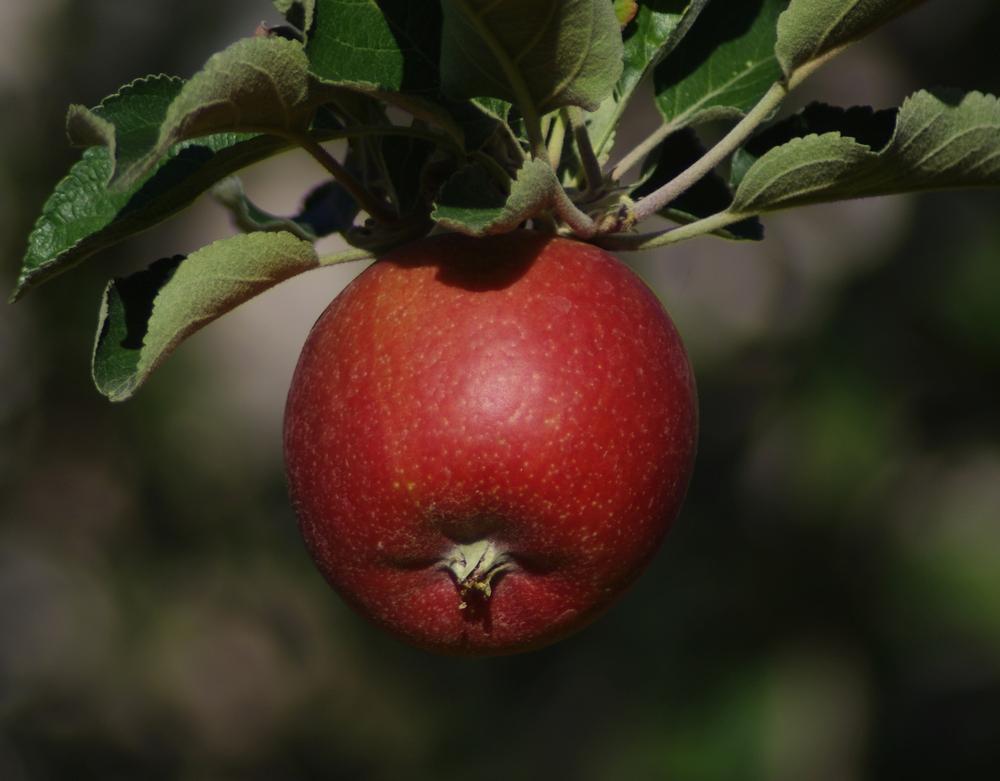Growing your own apple trees is relatively easy, but avoiding insect and disease damage to the fruit requires pruning and prevention.

Prune. Prune your apple tree every winter before you detect any signs of new growth. Eliminate crossing branches, watersprouts, and crowded growth. The following pointers will help keep pests at bay.
Eliminate hiding places. Pick up and destroy fallen fruit, which may contain grubs. Remove plastic and paper tree guards, where adult flies and moths may spend the winter. Replace them with wire mesh guards. Surround trees with mulch instead of grass.
Smother with oil. In spring just before new leaves emerge, spray trees with nontoxic horticultural oil. The oil smothers dormant insects and their eggs.
Know your pests. Three common insect pests that damage apple fruits are apple maggot flies, plum curculio, and codling moth. The best time to control these pests is while they are mating and looking for potential egg-laying sites. This is just before early to midsummer, when these insects lay their eggs on or near developing fruit.
Apple maggot flies appear in June or July to lay their eggs on developing apples. When the eggs hatch, the larvae burrow into the fruit. Trap flies with sticky red spheres and bright yellow 8- by 10-inch rectangles hung in the trees at eye level. Place spheres near fruit clusters about three weeks after flower petals fall; use two traps for a small tree (8 feet tall or less), six traps for a large tree (10 to 25 feet).
Curculio is a 1/4-inch-long beetle that makes distinctive crescent-shaped scars on developing fruit. The grubs tunnel through the apples, causing the fruit to drop in early summer. Nonchemical controls include spreading a tarp under the trees in the morning and shaking the tree to dislodge the pests. Also, raking up and destroying dropped fruit will reduce the local population of these pests over time.
Codling moths lay eggs on developing fruits shortly after petals fall in spring. Eggs hatch in a few days, and young larvae tunnel into fruits where they feed and mature, destroying the fruit in the process. The best remedy is spraying Bacillus thuringiensis kurstaki in the evening 15 days after petals begin to fall. Repeat five days later. The spray is toxic to caterpillars only.
Apple scab is a fungal disease that causes black splotches on leaves and fruit. It is most common and severe in the eastern U.S. where summer rainfall is common, but it occurs in all apple-growing regions. The first line of defense is to plant scab-resistant varieties such as 'Enterprise', 'Freedom', 'Gold Rush', 'Jonafree', 'Liberty', 'Macfree', 'McShay', 'Nova Easygro', 'Prima', 'Priscilla', 'Pristine', 'Redfree', 'Sir Prize', and 'William's Pride'.
If you've inherited a disease-prone variety, sulfur sprays can control the disease. Use liquid sulfur, spraying it over the tree once flower buds show pink. Repeat 10 days later.
Tips
To reduce the need for fungicides, choose only disease-resistant apple varieties when buying young fruit trees.
Avoid all-purpose fruit sprays because they kill many beneficial insects as well as the harmful ones.
 Victory Seed Company has all the seeds you want for your best garden in 2024.
Victory Seed Company has all the seeds you want for your best garden in 2024.
For 25 years, the family-owned Victory Seed Company has provided the highest quality vegetable, herb and flower seeds to families across the country. We are passionate about providing you the best seeds available that give excellent germination, robust plants, and the harvest you want. With a catalog of over a thousand varieties, we have everything, and our prices are the kinds that we'd want to pay. We have hundreds of yesterday's heirloom vegetables, as well as today's award winning hybrid selections. Get to know us by visiting our website and browsing through our online vegetable seed catalog.